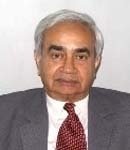South Asian Dialectic
Federalism: Centre as Coordinator and Adjudicator
17 Feb, 2014 · 4314
Prof PR Chari recommends the exercise of maturity and restraint between the federal and regional authorities
Some verities about federalism in the context of regionalism in South Asia are becoming clearer. The proposition that "the (changing) political map of South Asian countries must reflect its social and cultural diversities" is unarguable. How, then, should the inescapable contentions between the peripheral and central federating entities be managed, apart from differences between the federating units themselves that are "yielding contrary trends and mixed conclusions"? I argue that, while respecting regional aspirations, the Centre must function effectively as a coordinating and adjudicatory authority for the whole nation to remain viable.
One is fortified here by the lessons of history. The role of village republics in Buddhist times, their tradition of democratic functioning with all decisions being taken by consensus, and the local administration being under the village assemblies has been deified. The larger lesson of history is that these village republics were easily overrun by the Mauryan rulers and incorporated into their empire, since these purely local regional units could neither defend their integrity nor implement a common foreign policy.
Coming to British India, Sir Charles Metcalfe, acting governor-general of India had minuted in 1830: "This union of the village communities, each one forming a separate little state in itself, has, I conceive, contributed more than any other cause to the preservation of the peoples of India." Metcalfe was speaking to local government. He did not appreciate the interplay between centrifugal and centripetal forces in Indian history with empires being born, flourishing, reaching their zenith, declining and finally disintegrating over and over again. This process also revealed the underlying tension between the federal (integrative) and regional (disintegrative) forces within Indian polity. The balance of power must favour the central authority if the federal entity is to survive.
These issues have been dramatised by the regional Aam Admi Party's confronting the Union Government in Delhi. It would be recollected that Delhi became the capital of British India in 1912 after excising it from the Punjab Province. It was designated a Chief Commissioner's Province, and was directly administered by the Centre. Later, it was designated a Part C state, and, still later, pursuant to the recommendations of the State Reorganisation Committee, Delhi was designated a Union Territory. Under Article 239 of the Constitution, Union Territories are to be administered by the President through an Administrator (Lt Governor).
But, there has been a clamour over the years for granting Delhi full Statehood, which is being echoed by the Aam Admi Party, but is resolutely opposed by the Union Government. In truth, any scheme for the administration of Delhi must appreciate its urban character, and the need for the Union Government to exercise close supervision and control over the capital city. The Sarkaria Committee, appointed in end 1987 to examine this issue, studied the set-up in other national capitals of the world having a federal set-up; it finally recommended after extensive consultations that Delhi should remain a Union Territory with a Legislative Assembly and a Council of Ministers responsible to this Assembly. However, matters relating to the police, land and public order were reserved for the Centre. The Committee further recommended that to ensure stability and permanence to these arrangements, the Constitution should incorporate provisions to accord a special status for the national capital among the other Union territories, which was effected by a Constitutional Amendment in end-1991, and the insertion of new Articles 239AA and 239AB.
The major reason why the Committee (I was its Member-Secretary) recommended these arrangements was that it anticipated contingencies where the Central and Delhi governments might come into conflict, as is currently occurring, leading to practical difficulties in the governance of the national capital. For instance, the Delhi government could bring the working of the Union Government to a standstill by populist agitations and boycott movements or even organising gheraos of Parliament, North and South Block and other Central Government offices. For this reason, the vital subjects of public order and the police, were excluded from the purview of the Delhi government and reserved for the Centre.
This long digression has been undertaken to highlight a special problem of Indian federalism, pertaining to the administration of its national capital, and draws pointed attention to the need for privileging the central authority to counter sub-national populism in Delhi, but also other parts of the country. Regrettably, regional parties have, thus far, shown little interest in participating in the governance of the country or helping in the process of consensus-building, which further strengthens the argument for having a strong centralising authority, especially to execute foreign policy and provide national security.
How the increasingly uneasy power equations between the federal and regional authorities will work themselves out in future remains to be seen, but great maturity and restraint will be required on all sides. A hopeful sign is that Article 356 is falling into disuse in contrast to its misuse in the earlier years of one-party and central dominance.


